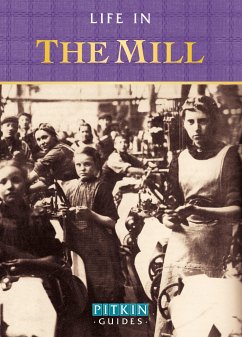For centuries,, most textile manufacturing relied on people working in their own homes. All that changed in 1761 when Richard Arkwright began construction of the first water-powered cotton mill in Derbyshire. Soon mills spread across the north of England and into Scotland and tasks were taken out of the cottage into the factory. Later, power looms began to take over from the handlooms, but not without fierce resistance - these were the years of Luddism and machine breaking. The new machines did not require the same skills and thousands of children were recruited, many living in special apprentice houses. Conditions were harsh and the children worked with dangerous machinery. There were employers, such as Robert Owen of New Lanark, who reduced the children's hours and gave them an education. As the industry developed so towns grew and many developed appalling slums. The arrival of steam power brought its own problems - woollen towns lived under a permanent pall of smoke, but for many the biggest problem was the noise - and mechanisation did not mean an end to hard work. There was a time when Britain sent textiles around the world: this is the story of the workforce, mainly women and children, who made this possible - and created the factory age.
Dieser Download kann aus rechtlichen Gründen nur mit Rechnungsadresse in A, B, BG, CY, CZ, D, DK, EW, E, FIN, F, GR, H, IRL, I, LT, L, LR, M, NL, PL, P, R, S, SLO, SK ausgeliefert werden.









